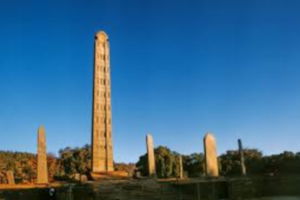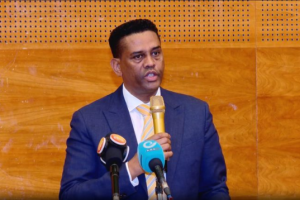
The history of Ethiopia’s diplomatic relations with various countries has almost 116 years of recollections. In fact, the country’s position on the world stage is replete with centuries-old virtues being the bedrock of international cooperation. And, to date, the nation enjoys historic yet amicable friendship with a majority of global countries and entities, owing to its balanced and neutral approach. These virtues have long made Ethiopia a reliable partner in global diplomacy and international relations. In addition to its rich history and ancient civilization that serves as a basis of cooperation with the rest of the world, the country’s geopolitical importance and remarkable economic growth in recent years have been alluring nations to forge boosted ties with the seat of the African Union.
Although having strong ties with nations across the world, Ethiopia’s relationship with some countries is historic and longstanding. Among the first countries to establish diplomatic relations with Addis Ababa was the United States of America. On December 27, 1903, Emperor Menilik II and U.S. envoy Report Skinner signed the first Ethiopia-U.S. bilateral treaty.
The official diplomatic relation has entered its 120th year. The bilateral cooperation has seen fruitful growth accompanied by both ups and downs. Among the incidents was the northern Ethiopian conflict that tasted the two countries’ relationship. Ethiopia’s suspension from the African Growth and Opportunity Act (AGOA) for many was a wrong decision that cast a shadow on the longstanding partnership.
For many, the suspension has only been counterproductive, exacerbating the effects of the war in Ethiopia. Eventually, Ethiopia managed to bring an end to the conflict through negotiation and peaceful means. Nevertheless, the U.S. government is yet to lift the suspension pause. Lifting the suspension and providing financial and technical support proved vital in helping Ethiopia recover from the big toll of the war fully and quickly. Against the backdrop, both nations continue to enjoy a cemented cooperation and have been on the same page in terms of their position to ensure regional peace and stability.
Over the years, Ethiopia has emerged as a key player in Africa and beyond taking the lead in a wide range of regional, continental, and global affairs. Particularly, the country’s strategic location in the Horn of Africa makes it an important ally for the United States in terms of addressing regional challenges such as terrorism, piracy, and instability.
Amidst the odds, Addis Ababa and Washington have embarked on a new chapter in their diplomatic relations as both nations strive to strengthen ties and foster mutual cooperation. This renewed partnership holds immense potential for economic growth, regional stability, and shared progress.
The two countries have been a key ally in weakening the terrorist Al-Shabab group. Ethiopia has been a major peacekeeping force in restoring peace in Somalia while the U.S. has been offering intelligence and equipment to the former. Their collaboration has indeed made a difference putting the terrorist group in precarious conditions while helping the central government of Somalia stand on its two feet. Ethiopia is also among the major recipients of U.S. assistance and remains to be Washington’s close friend in Africa. The countries’ cooperation ranges from security to climate change.
Besides, both nations still face the same challenges, particularly with respect to their interests in the Red Sea and Indian Ocean. Piracy and unlawful arms trafficking have posed challenges to maritime and commercial activities requiring the response of global partnerships. The change of climate change has also become another area where both nations can work closely.
The U.S. government actively participates in various sectors in Ethiopia and demonstrates its support to the country through different interventions. Numerical figures solidly back this. For instance, the trade exchanges between Ethiopia and the United States have witnessed substantial growth in recent years. According to the U.S. State Department, the two countries have strong economic ties, with roughly 1.8 billion dollars in two-way trade in goods in 2022.
U.S. exports to Ethiopia are dominated by aircraft, aircraft engines, and parts, and Ethiopian exports to the United States feature coffee, garments, and leather and leather products. Ethiopia lost African Growth and Opportunity Act eligibility in January 2022 due to human rights concerns. Major U.S. companies active in the country include Boeing, Corteva, General Electric, Coca-Cola, and several U.S.-branded hotels.
In addition to economic ties, security cooperation between both nations has become increasingly vital. Ethiopia plays a crucial role in maintaining regional stability by actively participating in peacekeeping missions across Africa under the auspices of the African Union (AU). The United States recognizes this contribution and continues to provide military assistance aimed at enhancing Ethiopia’s capacity to combat terrorism effectively.
Also, according to the department, between 2005 and 2019, Ethiopia had been one of the fastest-growing and one of the top ten largest economies in Africa, averaging GDP growth of nearly 10 percent per year. This economic expansion was driven largely by capital accumulation and public infrastructure investments. The ever-growing economy of the country attracts many countries to establish and enhance their relations with Ethiopia.
In his New Year message, Ervin Massinga, the United States Ambassador to Ethiopia, expressed pleasure in honoring the 120th anniversary of diplomatic relations between Ethiopia and the United States as the former welcomed the year 2024. This significant occasion celebrates a journey of mutual respect, long-lasting friendship, and joint progress. The bilateral relations, which began in 1903, have expanded over the years to encompass cultural, economic, and diplomatic dimensions.
He added that as the New Year begins, the United States reaffirms its commitment to fostering cooperation that will assist Ethiopia in its pursuit of peace, unity, and prosperity. “May this year serves as a beacon of optimism and development, strengthening the ties that bind our peoples and nations together,” the ambassador said in his wishes.
In terms of future collaboration, there is immense potential for Ethiopia and the United States to work together across various sectors, including agriculture, energy development, education exchange programs, healthcare initiatives, and technology transfer partnerships.
Ethiopia-U.S. diplomatic relations are poised for growth on multiple fronts: political cooperation, trade expansion, security collaboration, and cultural exchanges, all contributing towards building a stronger foundation for mutual understanding and progress between these two nations at opposite ends of the globe but united by common aspirations.
It is worth noting that the U.S. Department of State emphasizes the importance of the United States and Ethiopia’s long-standing partnership in promoting peace, stability, and economic development. Both countries are committed to pursuing these shared interests.
Overall, as Ethiopia and the United States celebrate 120 years of diplomatic relations, they reflect on a journey marked by mutual respect, enduring friendship, and collaboration. The bilateral ties between the two nations, which began in 1903, have expanded to encompass cultural, economic, and diplomatic dimensions. As the year 2024 begins, the United States reinforces its commitment to supporting Ethiopia in its quest for peace, unity, and prosperity, fostering cooperation that will benefit both nations.
BY EYUEL KIFLU
THE ETHIOPIAN HERALD TUESDAY 2 JANUARY 2024




